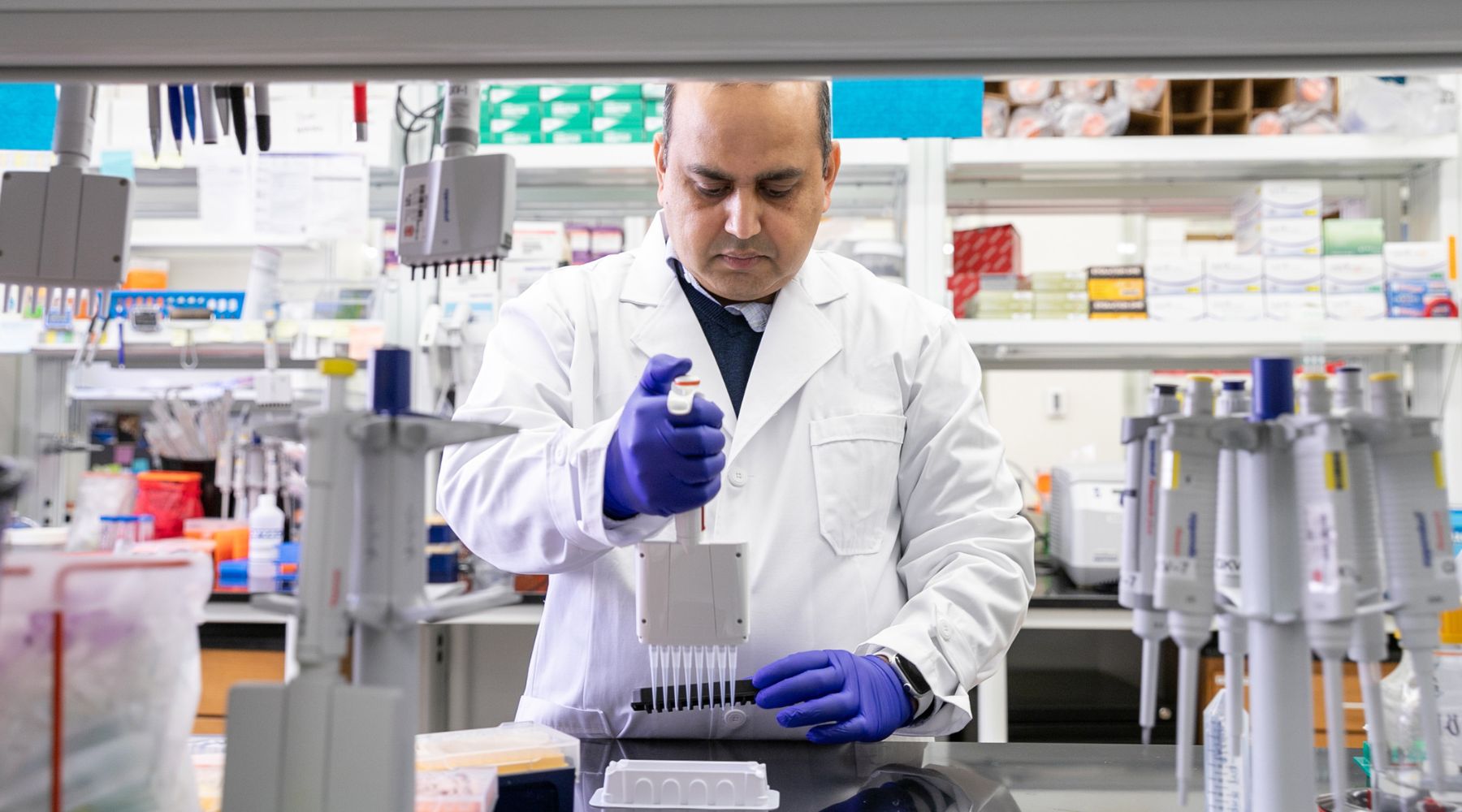The National Institutes of Health has awarded a $2.4 million grant to an Oklahoma Medical Research Foundation scientist whose lab identifies disease-causing genetic mutations.
With the four-year grant, OMRF scientist Gaurav Varshney, Ph.D., aims to study these mutations more quickly and on a larger scale than is currently possible. Ultimately, his work could lead to earlier discovery of potential drug therapies for conditions ranging from neurological disorders to hearing loss.
Varshney’s lab studies the effects of genetic variants in zebrafish. More than 80% of human genes associated with disease have a counterpart gene in the paperclip-sized fish, so understanding mutations in the fish can cast new insights onto human illness.
His research relies on gene-editing technology called CRISPR, which Varshney calls “a pair of molecular scissors that can cut and paste DNA.”
Since CRISPR was introduced in 2012, scientists have developed more precise versions of these scissors, called base editors, Yet even with base editors, matching an individual mutation to a disease has proven arduous. “The human body contains more than 25,000 different genes, and each gene includes the potential for many different mutations,” Varshney said.
His lab plans to introduce a new, more scalable method of testing genetic variants. Varshney’s grant application promises to work through 80 genes related to neurological disorders, hearing loss and musculoskeletal diseases. “But I think we can push that number closer to 200,” he said.
“Dr. Varshney’s work will benefit scientists around the world who study human genetic disorders through zebrafish,” said scientist Patrick Gaffney, M.D., who chairs OMRF’s Genes & Human Disease Research Program. “His approach will help fill the gap between discovering disease genes and understanding their functional impacts.”
The grant, awarded by the NIH director’s office, is No. 1R24OD034438-01A1. A previous grant from the Oklahoma City-based Presbyterian Health Foundation funded preliminary research that made Varshney’s NIH grant possible.
The PHF grant also funded a technological breakthrough by Varshney’s postdoctoral researcher, Wei Qin, Ph.D., that will further expedite research on individual genetic mutations. Qin’s discovery was recently published in the journal Nature Communications.



